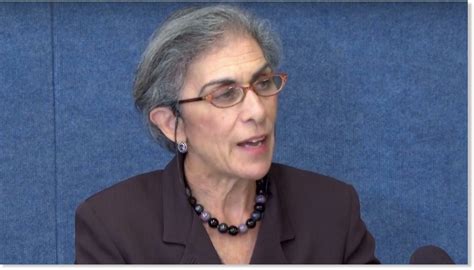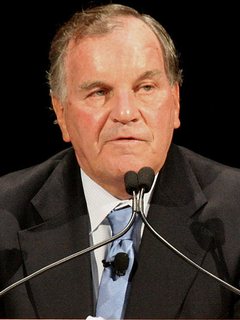A Quote by David Deutsch
No precautions, and no precautionary principle, can avoid problems that we do not yet foresee. We need a stance of problem-fixing, not just problem-avoidance.
Related Quotes
In other words, the real problem is not exterior. The real problem is interior. The real problem is how to get people to internally transform, from egocentric to sociocentric to worldcentric consciousness, which is the only stance that can grasp the global dimensions of the problem in the first place, and thus the only stance that can freely, even eagerly, embrace global solutions.
A lot of the problems we have in our criminal-justice system, you know, the problem of over-incarceration, the problem of prosecutorial abuse, the problem of just this sort of mass crop of people, of plea bargains, they all have to do with the system being overloaded. If crime was lower, many of the problems would go away.
Cities are never random. No matter how chaotic they might seem, everything about them grows out of a need to solve a problem. In fact, a city is nothing more than a solution to a problem, that in turn creates more problems that need more solutions, until towers rise, roads widen, bridges are built, and millions of people are caught up in a mad race to feed the problem-solving, problem-creating frenzy.
We are more than our problems. Even if our problem is our own behavior, the problem is not who we are-it's what we did. It's okay to have problems. It's okay to talk about problems-at appropriate times, and with safe people. It's okay to solve problems. And we're okay, even when we have, or someone we love has a problem. We don't have to forfeit our personal power or our self-esteem. We have solved exactly the problems we've needed to solve to become who we are.
What has happened to create this doubt is that a problem (such as a deep conflict or a bad experience) has been allowed to usurp God's place and become the controlling principle of life. Instead of viewing the problem from the vantage point of faith, the doubter views faith from the vantage point of the problem. Instead of faith sizing up the problem, the situation ends with the problem scaling down faith. The world of faith is upside down, and in the topsy-turvy reality of doubt, a problem has become god and God has become a problem.
It is not fear that stops you from doing the brave and true thing in your daily life. Rather, the problem is avoidance. You want to feel comfortable so you avoid doing or saying the thing that will evoke fear and other difficult emotions. Avoidance will make you feel less vulnerable in the short run but, it will never make you less afraid.




































